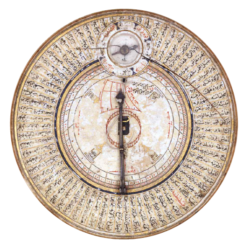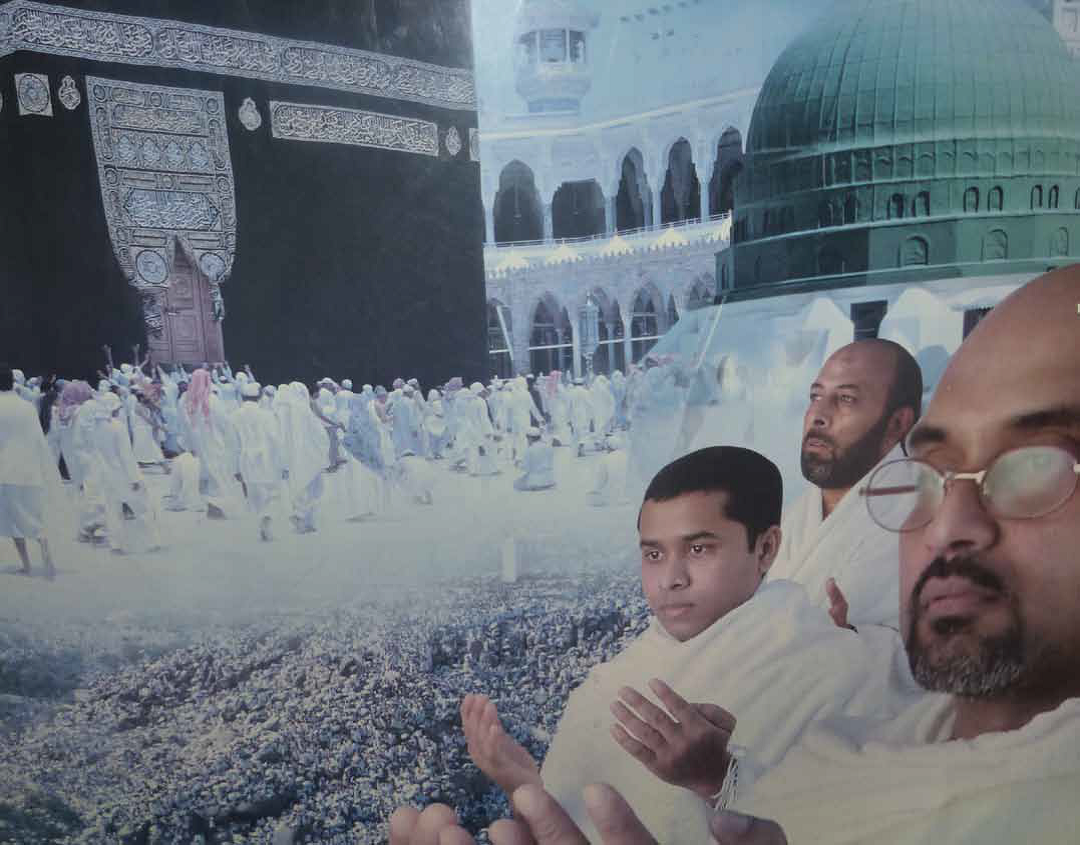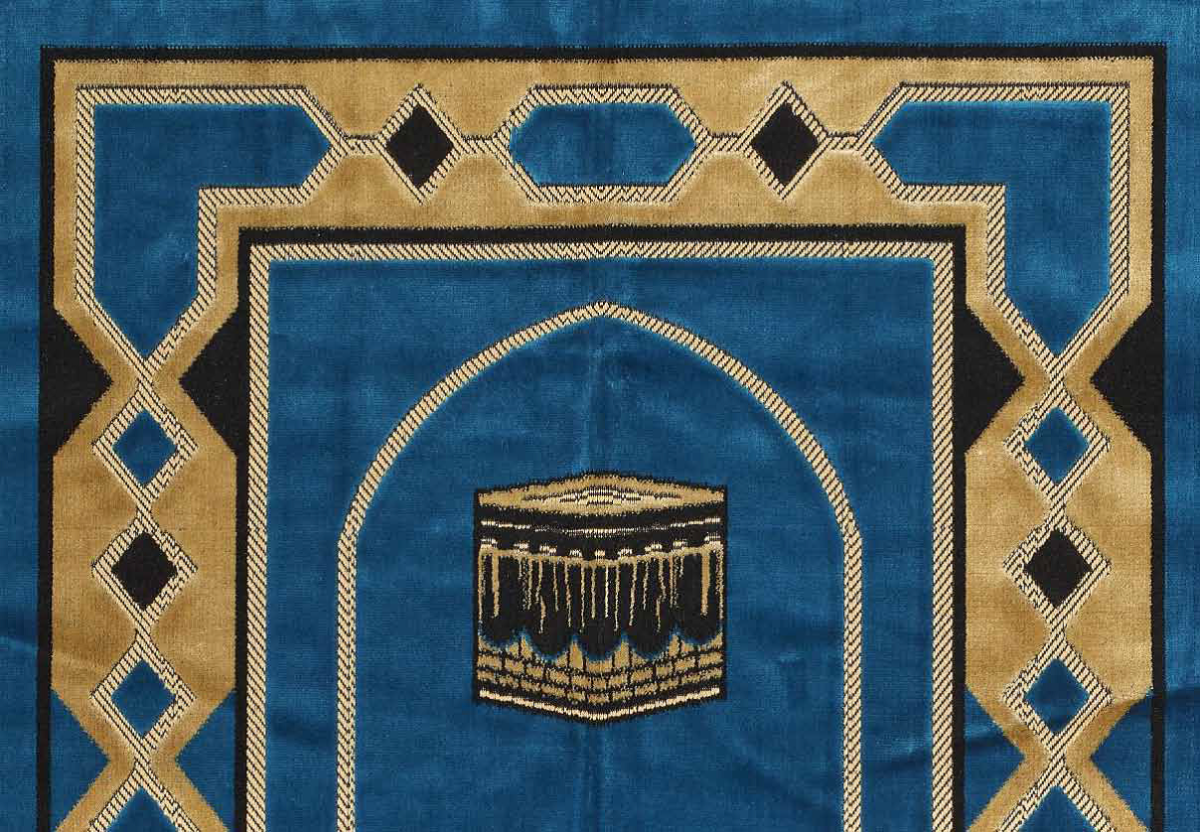Longing for Makkah

Qibla indicator and compass made by Bayram Ibn Ilyas, 1582; British Museum.
Duty and Desire
Going for Hajj to fulfil a religious duty is foremost in some British Muslim accounts of the pilgrimage. However, like Muslims everywhere, British Muslims also sustain a deep emotional connection to the holy places of Makkah and Madinah.
Both formal Islamic traditions and more popular cultures - sacred texts, ritual practices, material objects and oral traditions, including returning pilgrims' Hajj stories - have shaped this attachment across the generations.
I just wanted to go there and, you know, see the Makkah, Makkah sharif and Madinah sharif and... you know. Like, I used to see in the picture always, 'I wish I was there, could see with my own eyes,' and I always wished I could go there before I die.
Sacred Geography and History

Saudia Airlines poster, featuring the ka‘ba and Dome of the Prophet’s Mosque.
The ka'ba at the centre of the Grand Mosque in Makkah al Mukarramah (the Honoured) represents Allah's House on earth, and as the direction (qibla) of daily prayers is a focus for both mental and bodily orientation towards Him.
While not part of the rituals of Hajj or Umrah most Muslims also long to visit the Prophet's Mosque in Madinah al Munawwarah (the Radiant), where Muhammad (pbuh), first established the Muslim ummah (community) and was later laid to rest.
It was quite emotional. Because I don’t think... we kind of just journey through life really without thinking about us as people and our actions and how they impact on other people, and to be kind of forced into really looking so deeply at yourself, it was quite profound and I found lots of things, lots of flaws.
"Being Called"

Modern prayer rug purchased in Madinah; British Museum.
Given the demands of family and working life, Hajj is a duty that is often deferred. Moreover, pious Muslims tend to speak of "being called for Hajj" as an expression of their trust in, and submission to, God's plans for them. Moments of profound need or inspiration are often narrated as the time when this becomes clear.
Once mainly seen as an opportunity for older people "to face al-akhira (the afterlife) with a clean sheet", as in some other parts of the Islamic world, Hajj is now increasingly performed by younger British Muslims. This sacred journey has now become a way to actively shape their spirituality in the here and now.
I always felt that God was calling me to go and I knew I had the means. I think in 2007 I went to a retreat in the mosque during the last ten days of Ramadan, and there I felt that God was telling me that “You should come”. ... as soon as I came out from the mosque I went straight to the travel agency and booked my tickets and everything.
